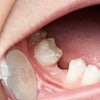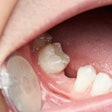
The National Institute on Aging, part of the U.S. National Institutes of Health (NIH), has awarded a $2.4 million grant to researchers at New York University College of Dentistry (NYU Dentistry). The five-year grant will be used to explore age-related, chronic, low-grade inflammation and changes in the gut microbiome.
Age-related, chronic, low-grade inflammation, known as inflammaging, plays a role in the rate of aging and age-related conditions such as diabetes and heart disease. It's likely the consequence of a dysfunctional relationship between an imbalanced gut microbiome and the immune system, according to an NYU press release.
Xin Li, PhD, an associate professor of molecular pathobiology at NYU, will study how the metabolite succinate is associated with aging in both humans and mice. The researchers have found that elevated levels of succinate change the gut microbiome by increasing the presence of disease-causing organisms. This change also activates the succinate receptor to increase inflammation and the production of myeloid lineage in the bone marrow. Preliminary data show that gut microbes, altered metabolites, and the activation of the succinate receptor contribute to inflammaging.
With the grant, Li and colleagues will examine succinate elevation's effect on the gut microbiome in animal models, as well as how these changes regulate signaling to promote inflammation. Using antibiotics and fecal transplants, the researchers will examine what happens to the inflammation. They will also look at the bone marrow's role in succinate-stimulated inflammation and the myeloid lineage shift.


















